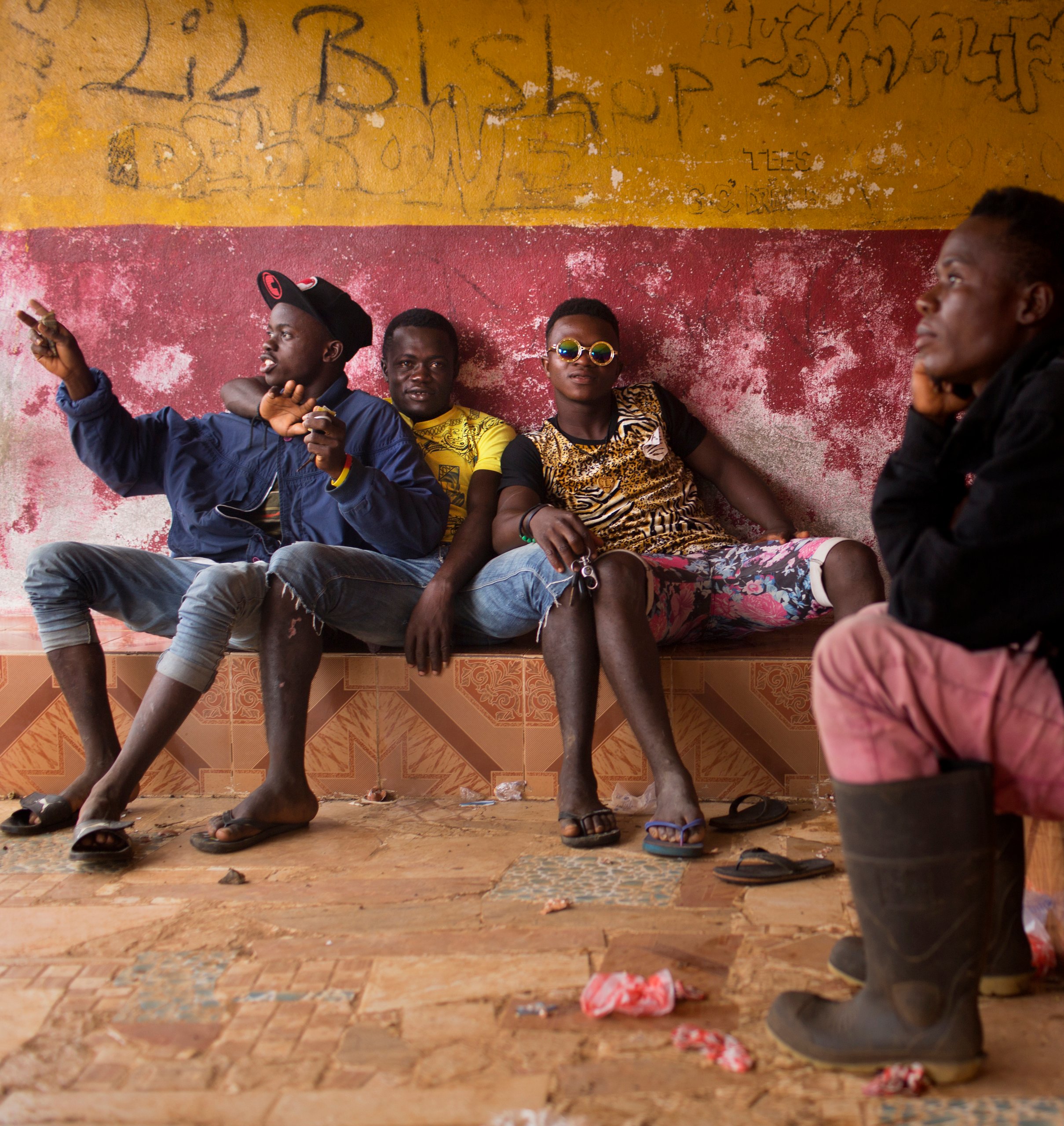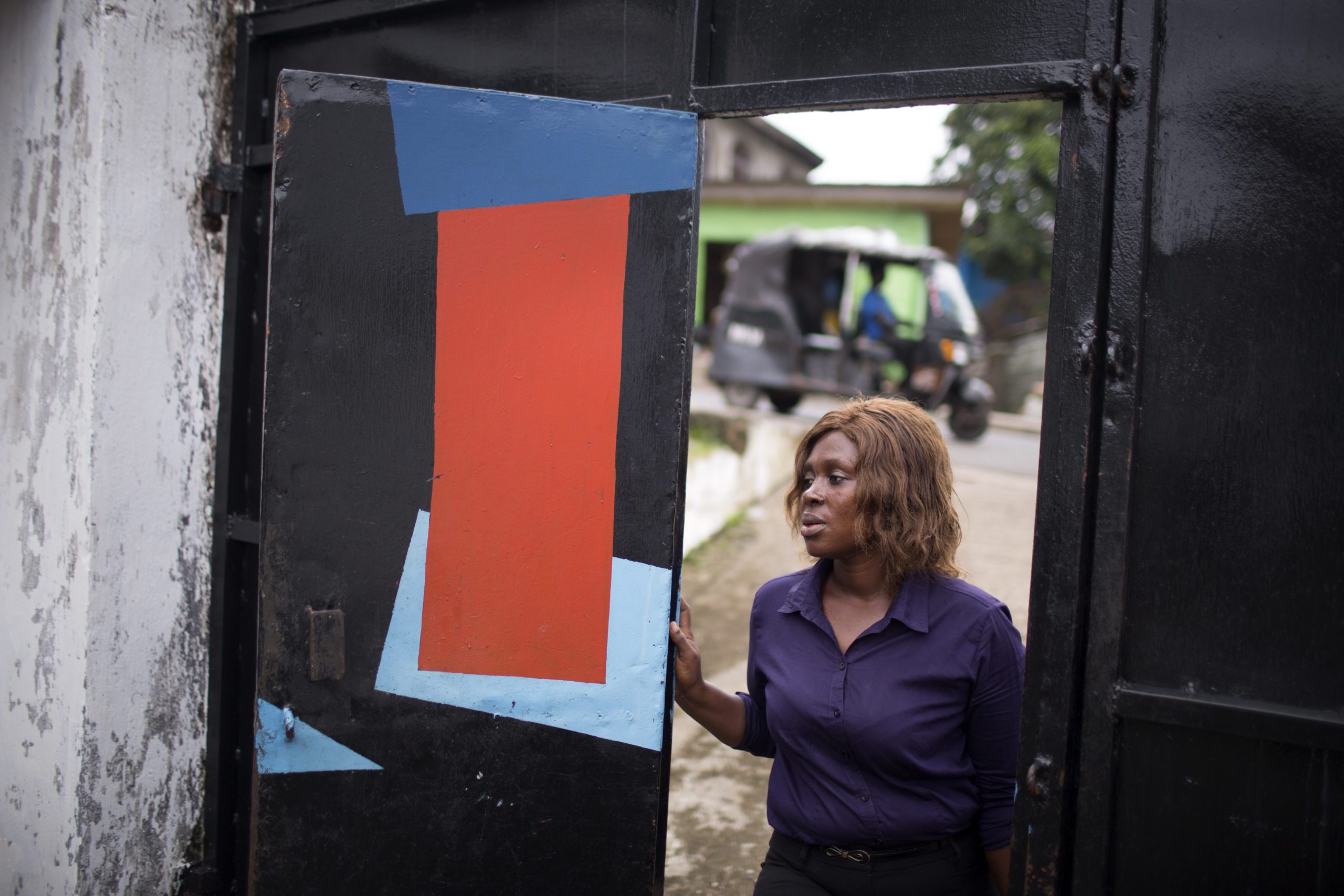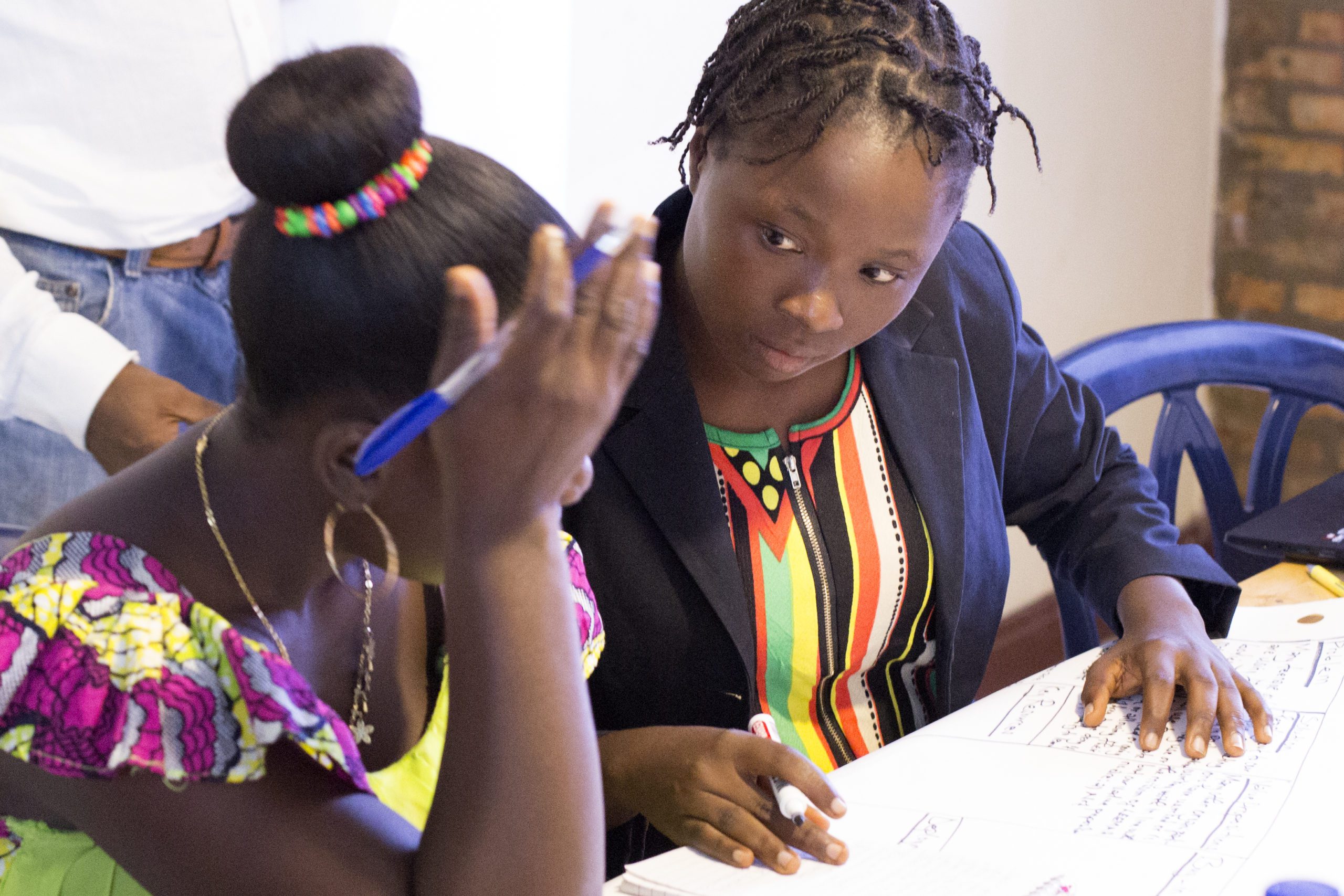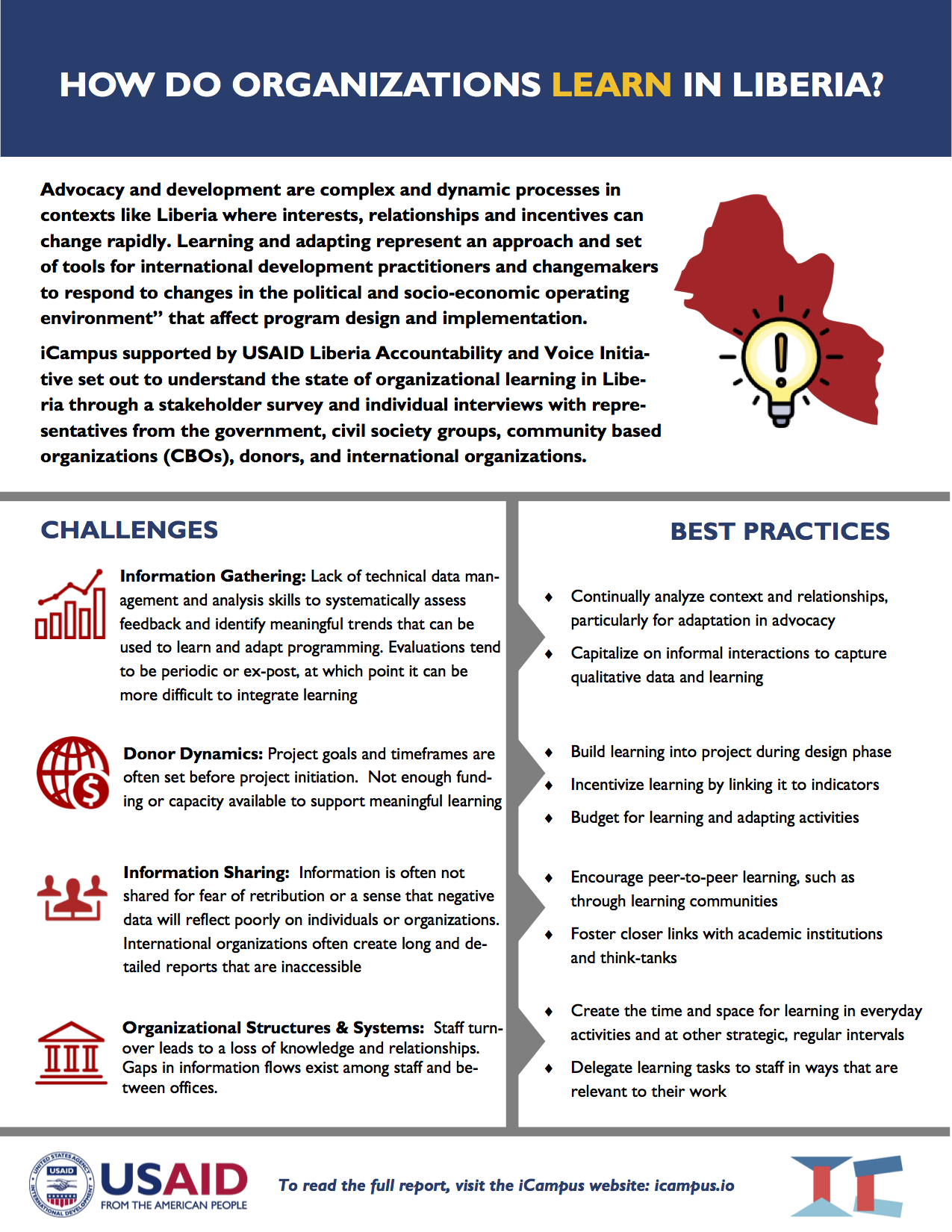NEWS
September 11, 2017

IN BRIEF
Read about the project we undertook with USAID to understand organisational learning in Liberia. Learning is never easy, particularly in Liberia. The context can change rapidly, information can be difficult to collect and decision-making can be unstructured. All the more important, therefore, for those of us hoping to improve our work and inform the process of development, to think it through on-the-ground- particularly as the policy conversations around learning tend to take place in Washington, DC or London, not Monrovia. At iCampus, our new collaboration and innovation space in Liberia, we have the perfect opportunity to build a learning community […]
SHARE
Read about the project we undertook with USAID to understand organisational learning in Liberia.
Learning is never easy, particularly in Liberia. The context can change rapidly, information can be difficult to collect and decision-making can be unstructured. All the more important, therefore, for those of us hoping to improve our work and inform the process of development, to think it through on-the-ground- particularly as the policy conversations around learning tend to take place in Washington, DC or London, not Monrovia.
 At iCampus, our new collaboration and innovation space in Liberia, we have the perfect opportunity to build a learning community in partnership with the support of the USAID Liberia Accountability and Voice Initiative (LAVI). So, in July 2017, we set out to map how organizations are learning in Liberia; better understand how this process can be used to assess not just the “how” of change in the country, but the “why”; and think through what this means for our own activities. What could possibly go wrong?! (Read the full report here).
At iCampus, our new collaboration and innovation space in Liberia, we have the perfect opportunity to build a learning community in partnership with the support of the USAID Liberia Accountability and Voice Initiative (LAVI). So, in July 2017, we set out to map how organizations are learning in Liberia; better understand how this process can be used to assess not just the “how” of change in the country, but the “why”; and think through what this means for our own activities. What could possibly go wrong?! (Read the full report here).
The Learning Mapping Process
We applied a 4-step process to understanding organizational learning, which we defined as the extent to which organizations engage in learning activities to capture, save and share lessons; and use this knowledge to adapt their activities.
First, a desk review of relevant literature (such as the USAID CLA and ODI thinking on these issues). Second, a stakeholder survey of 25 representatives from across government, civil society groups, businesses, the media, community based organizations (CBOs) and donors. Third, individual interviews with 28 representatives responsible in various ways for data collection, monitoring, evaluation or reporting. Fourth, a peer review of the findings with several experts in the field of monitoring, evaluation, and learning.
What we found is that Liberian stakeholders frequently feel disempowered by a development discourse (including around learning) driven by international organizations which creates an environment in which real, honest learning and agile program adaptation is very difficult. As a result, the frameworks and concepts of organizational learning are not yet well understood or used to guide strategic or programmatic practices in Liberia by either Liberian or international organizations.
Our research indicated that there are a number of ways that learning is neither relevant, incentivized or managed in Liberia, undermining its effectiveness. For example, there is a lack of commitment to data due to cultural, technical and capacity issues. There is also a deep sense of dependency that has evolved through the aid system, meaning participants in programs (for which they receive funding) or events (for which they have been paid stipends or travel costs) generally provide the feedback they think will most likely lead to further largesse rather than to improve outcomes.
Organizations generally prioritize good news over bad news, do not provide the space for experience or lesson sharing and do not always understand what information to collect to truly judge the effectiveness of programs. They are not flexible enough to adapt to feedback in meaningful ways and data collection is often key-person dependent.
Learning Tools and Successes
At the same time, and despite significant constraints, the survey and interviews indicated that there are pockets where exciting organizational learning is happening in Liberia. As one interviewee pointed out to us: “We should not be asking what learning means in Liberia; but rather: what can be learned from Liberia?”
And there is much to learn- we discovered, for example, some fantastic, replicable tools being used by civil society organizations including: short monthly summaries- of successes, surprises, disappointments and key quantitative da ta, to provide a snapshot of impact and learning, shared across the organization; contextualized surveys- on Saturdays, when program participants are at home and have time to speak, for example; and orally in local dialects rather than English to allow for ease of communication; video interviews- to allow for honest, qualitative feedback from program participants, avoid mistakes in transcription and facilitate online sharing; and failure files- several of the more forward-thinking Liberian organizations keep hard copy “failure files” alongside reporting files with explanations of project failures.
ta, to provide a snapshot of impact and learning, shared across the organization; contextualized surveys- on Saturdays, when program participants are at home and have time to speak, for example; and orally in local dialects rather than English to allow for ease of communication; video interviews- to allow for honest, qualitative feedback from program participants, avoid mistakes in transcription and facilitate online sharing; and failure files- several of the more forward-thinking Liberian organizations keep hard copy “failure files” alongside reporting files with explanations of project failures.
From Learning to Adapting
Building on these successes, real adaptive learning in Liberia will require making efforts to address the power dynamics inherent in the process so that it is truly perceived and implemented as a collaborative effort. Learning has to be made central and relevant to advocacy and development, sanctioned from the top-down and understood from the bottom-up.
This means organizations need to make more effort to prioritize learning, building it into the program design process, so that it is embedded from the outset, and incentivizing learning by linking it to performance indicators for projects. It also means understanding the context and moving quickly when the opportunity arises for the uptake of new ideas and ensuring there is a division of labor so that relevant ME&L tasks are allocated to the right team members. It also means, importantly, recognizing that not all learning is structured- often informal conversations and non-work related settings bring through the best ideas.
Next Steps
Here at iCampus with the support of USAID LAVI, we’re going to use these findings to build a learning community, that can continually work to better understand how to do development differently. Since June, we’ve begun this process through activities including Liberia’s first “Fail Faire” event (the next one coming soon!); a public learning call (which we will host quarterly) on lessons learned from advocacy work; training and mentoring sessions for organizations on integrating learning and adapting best practices into their work; and community-building and knowledge-sharing through online platforms.
All of this is just a start and we know organizational learning is a long-term and ongoing process- changing mindsets, incentives, and relationships is not easy. We’d love your help and ideas as we take this effort forward! We welcome feedback and ideas- please email us: blair@accountabilitylab.org or luther@icampus.io and find us on social media (@icampusLIB) to further these conversations.

